Your cart is empty
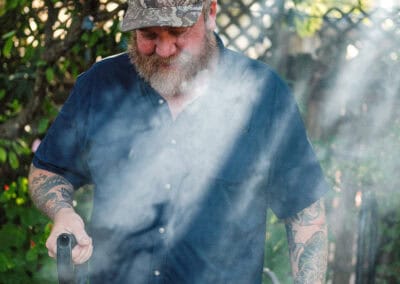
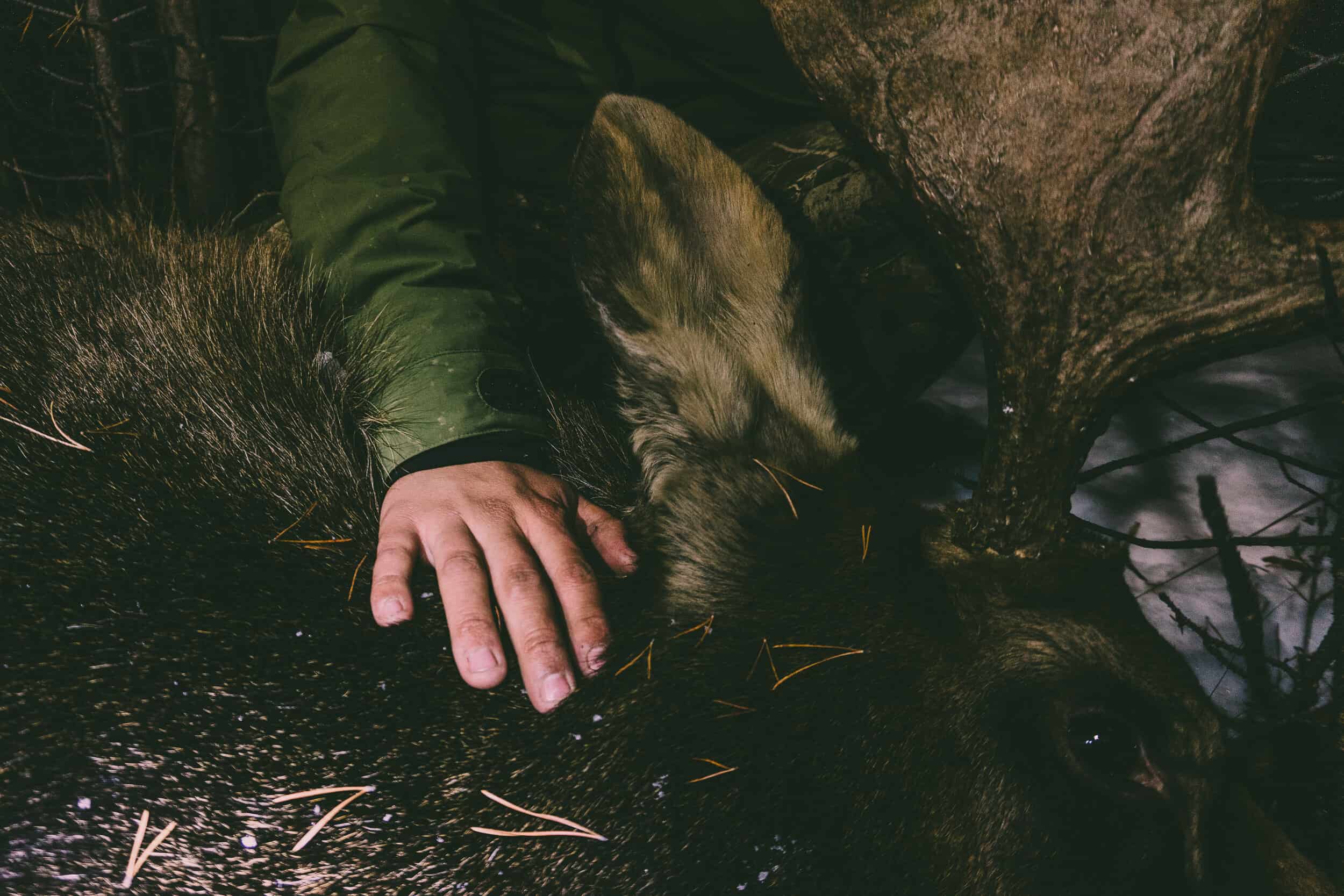
Dawn is breaking over a frigid wetland in British Columbia’s Chilcotin region. The sun ignites the low-lying mist as it evaporates over the golden grass; my phone is in hand capturing the moment before it passes. Beside me, my hunting partner leans in, looks at me, then my phone and in a low, measured voice whispers, ‘If you record this, I’ll fucking kill you.’ What follows is an undulating call echoing across the field, piercing the opposing timber. It is repeated twice more. The odd sound is what my hunting partner Darrell Collins, retired guide and outfitter, says is that of a cow moose.
At first, Darrell’s statement may seem threatening but he utters it endearingly with a smirk on his face. The 35-year guiding veteran is a friend; he and my father became friends at age five. Crouched in the cover of the pines, I listen intently, straining to capture the nuance and subtlety of the call. His reputation for calling moose has been the stuff of bedtime stories and parental reminiscing since I was a child. But the legend was not limited to campfire tales as Outdoor Life wrote that Darrell gave ‘one of the finest calling demonstrations I’ve witnessed.’
It’s the heat of the rut in early October, the unique time of year when it is possible to call in Bull Moose, often from several kilometers away. This is a fleeting opportunity to learn from the best, as Darrell spends more time tending his vegetable garden than tromping through the bush these days.
Learning to call from an older friend and mentor, Darrell deeply cherishes all he was taught. He’s since taken that knowledge and over decades in the wilderness, perfected his craft. Darrell is a purist, insisting that to achieve the intricacies necessary to produce the best call, the call best be made using only your two hands. Rolls or other tools detracts from subtleties; a louder call is attained through projection and developing your vocal cords. Learning a new language doesn’t happen overnight, but with time and effort improvements can be made.
Darrell chooses to pass on his knowledge in the same manner it was given to him, as an oral tradition. Not recorded, not written down, it’s experiential, skills learned while hunting in the thick of it, truly utilizing and practicing it in nature.
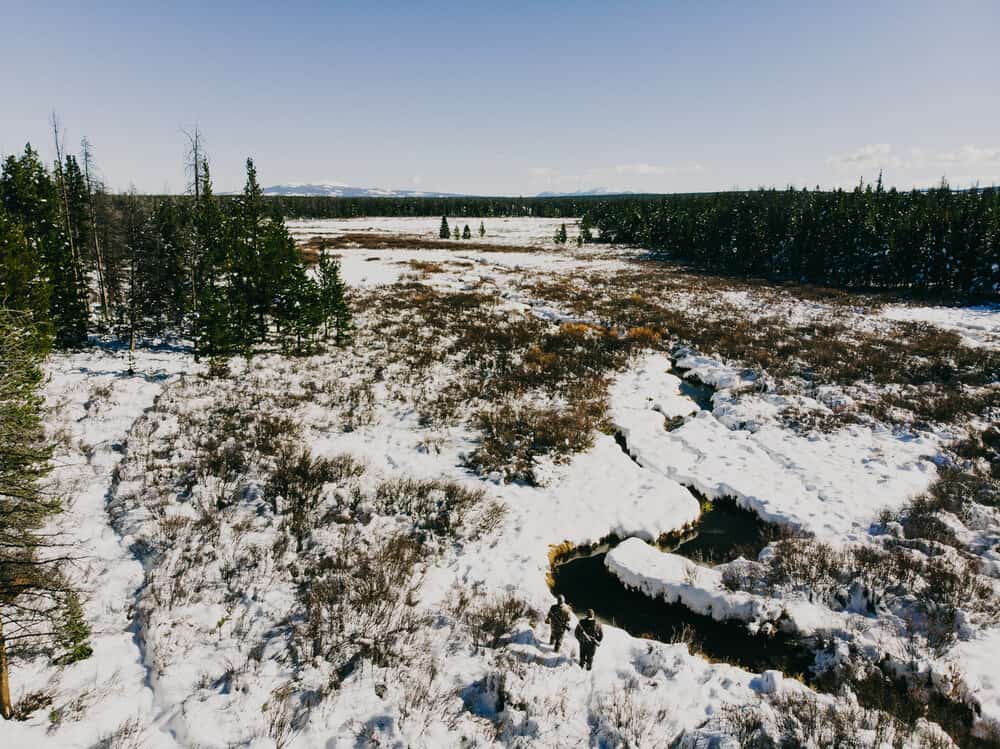
Walking softly along an old game trail, we are fully immersed in our wilderness experience; continuously make young bull grunts. These calls are another language lesson as we mimic an unassuming young bull walking through the woods which causes no concern for either cow or big Bull Moose. Darrell tells of many occasions in which he’s walked upon moose simply by grunting as he walks from calling spot to calling spot.
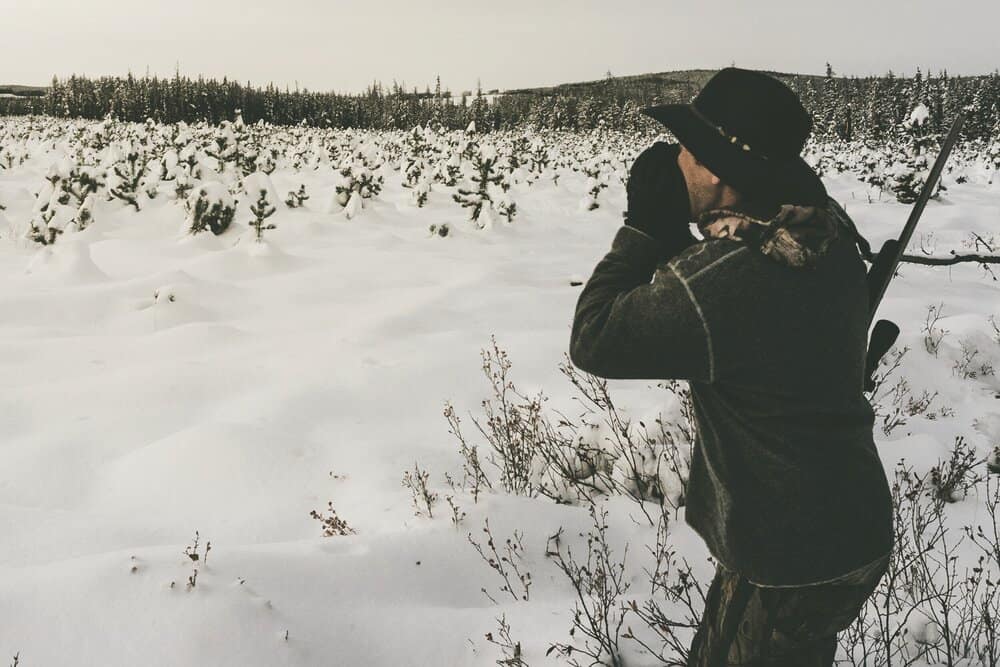
Darrell begins to call once again. A reply in the distance brings my neck hair to attention. I look at Darrell with excitement. Under his breath, he says it’s a few miles out; but we are patient and persist. We continue to call for about an hour giving the necessary time to coax the bull in. Appreciating the moment, I feel a deep connection to both the animal and the land in which we are hunting. We are in their territory, speaking their language.
One year later I’m sitting in a field, not unlike the one when I was with Darrell. Sitting behind tree cover with my young cousins, I begin calling. Nervously, I made my first call – I’m imperfect with the call but doing my best to mimic Darrell’s inflections. A forceful grunt calls back across a few hundred yards of grassland. My cousins’ are wide-eyed, my adrenaline is coursing. I call back and once again a reply follows, telling of movement from the opposing pines. As the bull walks closer, I think back to that morning with Darrell and I’m grateful to have learned some of his skills, skills that I can continue to hone over my hunting career.
The bull emerges from the pines, as he steps into the clearing and I feel a sense of pride in this oral tradition, I am beginning to speak the language.
Related Stories

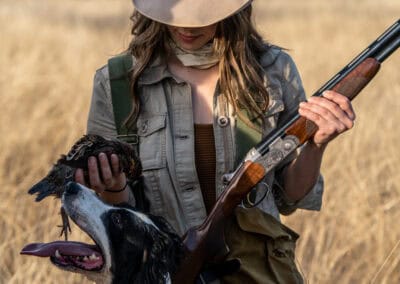

Latest Stories


